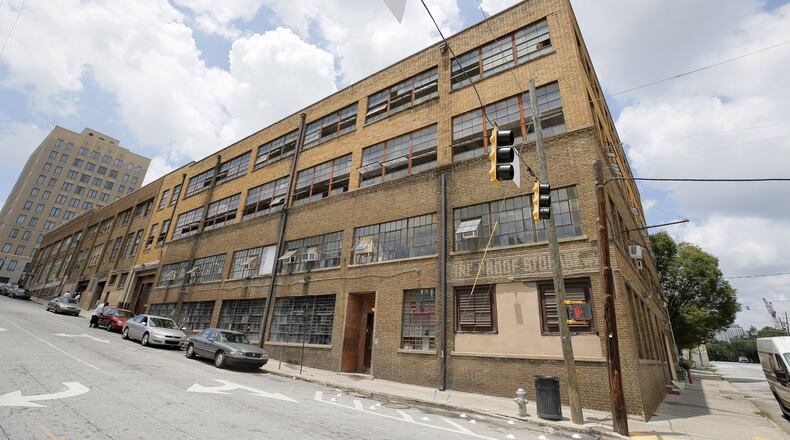With the Peachtree-Pine shelter set to close its doors this month, Fulton County is taking steps to help reduce the homeless population.
The county is creating two centralized assessment centers, one each in the north and south parts of the county, to help people who are homeless find shelter and deal with the root causes of the issue. County leaders are also negotiating with Atlanta to open a new shelter, Jefferson Place, to house some people who will be displaced from Peachtree-Pine.
“We just want to have an immediate impact,” said Frankie Atwater, the county’s director of community development. “Any reduction is a success.”
The assessment centers began offering services July 1, but don’t yet have physical buildings, Atwater said. They are run by North Fulton Community Charities in Roswell and Zion Hill in East Point.
The two centers will work to connect people to shelter, provide them help with rent or down payment assistance, or provide them with mental health assessments, among other services. Each will be funded with $275,000 in grant money.
In the past, Fulton County would have helped find people shelter, Atwater said. But the county is getting out of the business of direct services, instead helping to find groups that are better equipped to connect people to needed services.
The new program will help people have a smoother transition out of homelessness and will help reduce the homeless population, Atwater said.
“The goal is not just helping a person on a daily basis, it’s to get that person stabilized and to get them into permanent housing,” Fulton County Commission Chairman John Eaves said earlier this summer, when the Peachtree-Pine closure was announced.
The county is also negotiating a lease for Jefferson Place with Invest Atlanta. The county closed the shelter, at Jefferson Place and Martin Luther King Jr. Boulevard down the road from the Fulton County Jail, in 2014.
The Jefferson Place shelter, built out of the old county jail, closed after federal rules governing money from the department of Housing and Urban Development said funding couldn’t be duplicated in the same jurisdiction. Fulton County decided at that point to spend its money for homelessness outside the Atlanta city limits, Eaves said, because it became cost prohibitive to pay for the shelter on its own.
The lease terms aren’t complete, but the proposal calls for Invest Atlanta to pay $10 a year in rent for the decade-long lease term. Atlanta would be responsible for any upgrades or improvements to the facility, which needs repairs before it can open.
Fulton County would pay up to $170,000 a year in utilities, according to the proposal.
Atwater said the payments would be considered an in-kind match for the purpose of receiving grants to reduce the homeless population. In January 2016, during a point-in-time study, more than 4,500 people were counted in shelters and living outdoors in Fulton.
That number doesn’t include people who were staying with friends or relatives, but would still be considered homeless. Jefferson Place could have the capacity for as many as 250 people; Peachtree-Pine could swell to as many as 500.
Eliminating the problem of homelessness is possible, Eaves said previously, but requires a “degree of collaboration.”
“Homelessness in Atlanta is solvable with the political will,” he said.
MYAJC.COM: REAL JOURNALISM. REAL LOCAL IMPACT.
The AJC's Arielle Kass keeps you updated on the latest happenings in Fulton County government and politics. You'll find more on myAJC.com, including these stories:
Never miss a minute of what's happening in Fulton politics. Subscribe to myAJC.com.
About the Author
Keep Reading
The Latest
Featured



